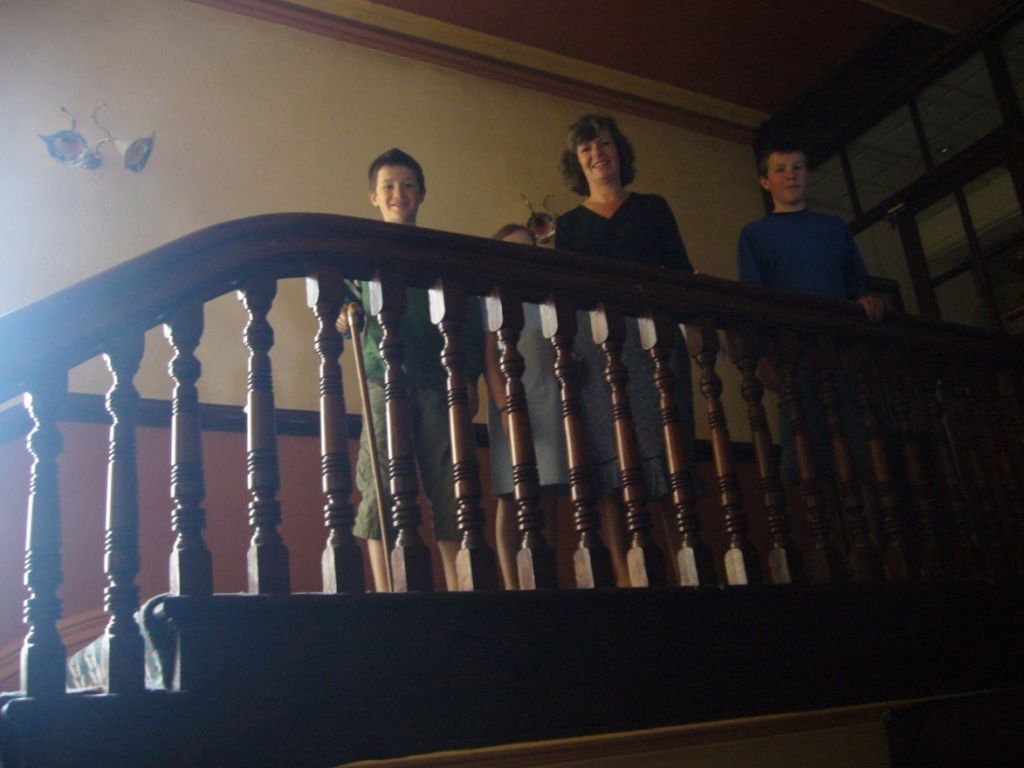The boom in Blackpool as a holiday resorted partly coincided with the time my great great grandfather, John Harling, was the manager of the Clifton Hotel in Blackpool.
The development of holiday resorts really began in the early nineteenth century. Before that, the first records of holiday visitors to Blackpool were in 1745 but there were only pubs to stay in.


By the late 1780s four hotels were listed in Blackpool for well-to-do visitors. Bailey’s (now the Metropole), Hudson’s, Hull’s and Forshaw’s – all named after the people who ran them. Forshaw’s became the Clifton hotel when that part of Blackpool was developed by Thomas Clifton, Squire of Lytham. He bought a large proportion of the Forshaw estate in 1843 and began to develop Talbot Road which runs along the north side of the Clifton Hotel.

John Harling arrived in Blackpool in 1869 as a twenty two year old, having walked the 25 miles from his home in Barrow. His obituary in the local newspaper says he arrived with nothing but the clothes he stood up in. He said when he first arrived you could have rolled a cannon ball along the promenade without hitting anyone, it was so quiet.
He must have married his first wife quite soon afterwards because by 1870 they had had a son, Clement Crookhall Harling. Clement and John are mentioned in parish records for Christ Church in Blackpool when Clement got married:
31 Aug 1901 Christ Church, Blackpool, Lancashire, England
Clement Crookall Harling – 31 Distiller’s Agent Bachelor of 39 Queen Street
Ellen Roughley – 34 Spinster of O B Egerton Road
Groom’s Father: John Harling, Hotel Manager
Bride’s Father: Edward Roughley, Deceased, Farmer
Witness: John Harling; Anne Hewitson
Married by Licence by: J Edwards
John Harling’s first job in the town was as a blacksmith. Afterwards he went into the confectionery business and had three shops around the town. He also did catering for the refreshment rooms at the Winter Gardens, which had opened in 1878, and of which he was later to become a director and Vice Chairman. He gave up the confectionery business in 1889 to become manager of the Clifton Hotel, a position he held for sixteen years until his retirement in 1905. He was also chairman of the Blackpool Herald Printing Company, publishers of the Blackpool Herald and the Blackpool Gazette. The Gazette is still published today. He was also chairman of the Crystal Mineral Water Company.


In 1895 John Harling was mentioned in the 14th December issue of The Era – a very popular newspaper of the time that reported theatrical and entertainment news – in this case a report on the Winter Gardens. It showed he had been to the United States to see how improve it.

‘Mr. Wm. Holland, manager of the Blackpool Winter Gardens, and Mr John Harling, one of the directors of that important place of entertainment, arrived home on Wednesday from their trip to America, where Mr Holland had gone in search of “ideas” for the extensions now being made to the Winter Gardens. They appear to have been enjoying themselves a little at the expense of the Yankee journalist, for upon the occasion of their visit to the Niagara Falls the Cataract placed on record in its columns that “Mr Holland is a millionaire, and controls the largest theatrical and amusement place in Great Britain, known as Her Majesty’s Opera House and Winter Gardens, situated at Blackpool, of which he is owner and general manager. This famous house and gardens are the handsomest and most costly of their kind in the world, and cost millions of dollars.’
On the 1901 Census, John Harling was 53 and listed as Hotel Manager. His second wife, Sarah Jane Harling, was 42 in 1901 and listed as Hotel Manageress. By then his first wife Eleanor Crookall had fallen several floors to her death at the Clifton Hotel over one of the low banisters on the spiral staircase. When I visited the hotel I saw how low the original banisters were and how a new higher banisters, made of brass, had been added to the top of the old wooden ones. He married Sarah soon afterwards. They had four children while they were at the Clifton Hotel, May born in 1895, John Clifton, known as Clifton after the Hotel, in 1897, my great grandmother Lydia in 1901 and Doris in 1903.


The year John Harling took over at the Clifton Hotel, 1889, the Blackpool Opera House opened. Two years later, work began on building Blackpool Tower, two blocks from the hotel. It opened in 1894. The hotel was already opposite the North Pier, the town’s first pier which had opened in 1863. The illuminations had begun in 1879. In the 1890s it was estimated that Blackpool’s 7,000 “dwellings” could accommodate a quarter of a million visitors, and 35,000 local people.

I went to look at the hotel when it was being refurbished in the summer of 2007. It was practically a building site. The name “Clifton” was still in lights on the outside. It re-opened the following year as a Travelodge. The name Clifton was gone, replaced by Travelodge Blackpool Central. The old era of independent hotels had been replaced by a corporate brand. Then last August, in 2012 Travelodge said they were pulling out of the Clifton because there were two other Travelodges in the town and there wasn’t enough business for all of them.
Conclusion. It was thanks to a group of entrepreneurs, including my great great grandfather who saw how to develop Blackpool and of course how to make money out of it that the town developed into the country’s leading holiday resort of its era. Blackpool and the hotel industry in general is suffering from the tough economic times. As I mentioned it looked like the Clifton might have to close again as Travelodge pulled out. However, in the week I have been doing this research The Blackpool Gazette published a report on 29th April 2013 that the Clifton is to be run by a new hotel chain called Ibis Styles which describes itself as “a designer economy brand for business and leisure travellers.” That description does not perhaps evoke the heyday of Blackpool hospitality around the turn of the 19th century but I’m sure Great Great Grandpa John would be delighted to know that the Clifton will still be offering a warm welcome to visitors for a few more years yet.

